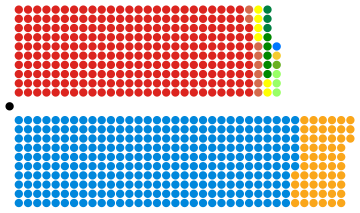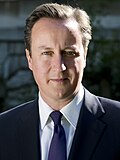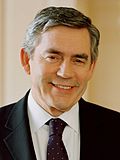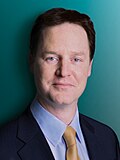2010 United Kingdom general election
This article does not have any sources. (December 2020) |
The 2010 United Kingdom general election was an election held on 6 May 2010 to elect 650 members to the House of Commons of the United Kingdom. The three party leaders are shown below.
| |||||||||||||||||||||||||||||||||||||||||||||
All 650 seats in the House of Commons 326 seats needed for a majority | |||||||||||||||||||||||||||||||||||||||||||||
|---|---|---|---|---|---|---|---|---|---|---|---|---|---|---|---|---|---|---|---|---|---|---|---|---|---|---|---|---|---|---|---|---|---|---|---|---|---|---|---|---|---|---|---|---|---|
| Opinion polls | |||||||||||||||||||||||||||||||||||||||||||||
| Turnout | 65.1% ( | ||||||||||||||||||||||||||||||||||||||||||||
| |||||||||||||||||||||||||||||||||||||||||||||
 Colours show the winning party, as shown in the main table of results
| |||||||||||||||||||||||||||||||||||||||||||||
 Composition of the House of Commons after the election | |||||||||||||||||||||||||||||||||||||||||||||
| |||||||||||||||||||||||||||||||||||||||||||||
Outcome
changeThe election resulted in a hung parliament, where no political party has an overall majority of seats. This is the first time this has happened since 1974.
The Conservative Party won 307 out of the 650 seats available making them the largest party in the House of Commons. A coalition was then formed between the Conservative Party and the Liberal Democrats who together had enough seats for a majority. This is the first coalition government in the United Kingdom since World War II.
The Leader of the Conservative Party David Cameron became Prime Minister of the United Kigdom on 11 May 2010 and the leader of the Liberal Democrats Nick Clegg became the Deputy Prime Minister. Before the election, the Leader of the Labour Party Gordon Brown was the Prime Minister.
This was the first British general election where the leaders of the three main parties took part together in a series of debates for television. The first debate was shown on ITV and was moderated by Alastair Stewart. It was on the subject of domestic affairs and polls taken after the debate showed that most people thought Liberal Democrat leader Nick Clegg had done the best and the Liberal Democrats then saw a large rise in support in opinion polls, even beating Labour for second place behind the Conservatives.
The second debate, on the subject of Foreign Affairs was shown on Sky News and was moderated by Adam Boulton. Polls after this debate showed that Nick Clegg and David Cameron had done best with Gordon Brown slightly behind. The third and final debate was shown on BBC One and was moderated by David Dimbleby. It was on the subject of the economy and taxes and most opinion polls indicated that David Cameron had performed the best out of the three leaders.
The Conservative Party gained support from the following newspapers: the Daily Express, the Daily Mail, the Sun, the Daily Telegraph, the Times, the Daily Star, the Evening Standard, the Financial Times, Sunday Express, the Mail on Sunday, the News of the World, the Sunday Telegraph and the Sunday Times. The Liberal Democrats were supported by: the Guardian, the Observer and the Independent. Only the Daily Mirror and the Sunday Mirror supported the Labour Party and the People newspaper favoured a coalition.
This election saw the Conservative Party return to government for the first time since 1997 and also saw the Liberal Democrats get their first ever representation in government. Peter Robinson, the First Minister of Northern Ireland and leader of the Democratic Unionist Party unexpectedly lost his seat to the Alliance Party. The Green Party of England and Wales gained its first ever seat in the House of Commons and the Alliance Party of Northern Ireland gained its first seat in the House of Commons since 1974. Former Labour Party Home Secretaries Jacqui Smith and Charles Clarke both lost their seats. The Ulster Unionist Party and the Respect Party won seats in the 2005 General Election but lost their seats in the 2010 Election.
Results by party
changeThe final results of the election were:
- Conservative Party (306 MPs, 36.1% of vote)
- Labour Party (258 MPs, 29.0 % of vote)
- Liberal Democrats (57 MPs, 23.0% of vote)
- UK Independence Party (0 MPs, 3.1% of vote)
- British National Party (0 MPs, 1.9% of vote)
- Scottish National Party (6 MPs, 1.7% of vote) – Scotland only
- Green Party (1 MP, 1.0% of vote) – England and Wales only
- Sinn Fein (5 MPs, 0.6% of vote) – Northern Ireland only
- Democratic Unionist Party (8 MPs, 0.6% of vote) – Northern Ireland only
- Plaid Cymru (3 MPs, 0.6% of vote) – Wales only
- Social Democratic and Labour Party (3 MPs, 0.4% of vote) – Northern Ireland only
- Ulster Unionist Party (0 MPs, 0.3% of vote) – Northern Ireland only, In an alliance with UK Conservative Party
- English Democrats (0 MPs, 0.2% of vote) – England only
- Alliance Party of Northern Ireland (1 MP, 0.1% of vote) – Northern Ireland only
- Respect Party (0 MPs, 0.1% of vote)
- Traditional Unionist Voice (0 MPs, 0.1% of vote) – Northern Ireland only
- Christian Party (0 MPs, 0.1% of vote)
- Scottish Green Party (0 MPs, 0.1% of vote) – Scotland only
The seat of North Down was won by an Independent candidate and the seat of Buckingham was won by the Speaker of the House of Commons John Bercow, who is not considered to be of any political party.


